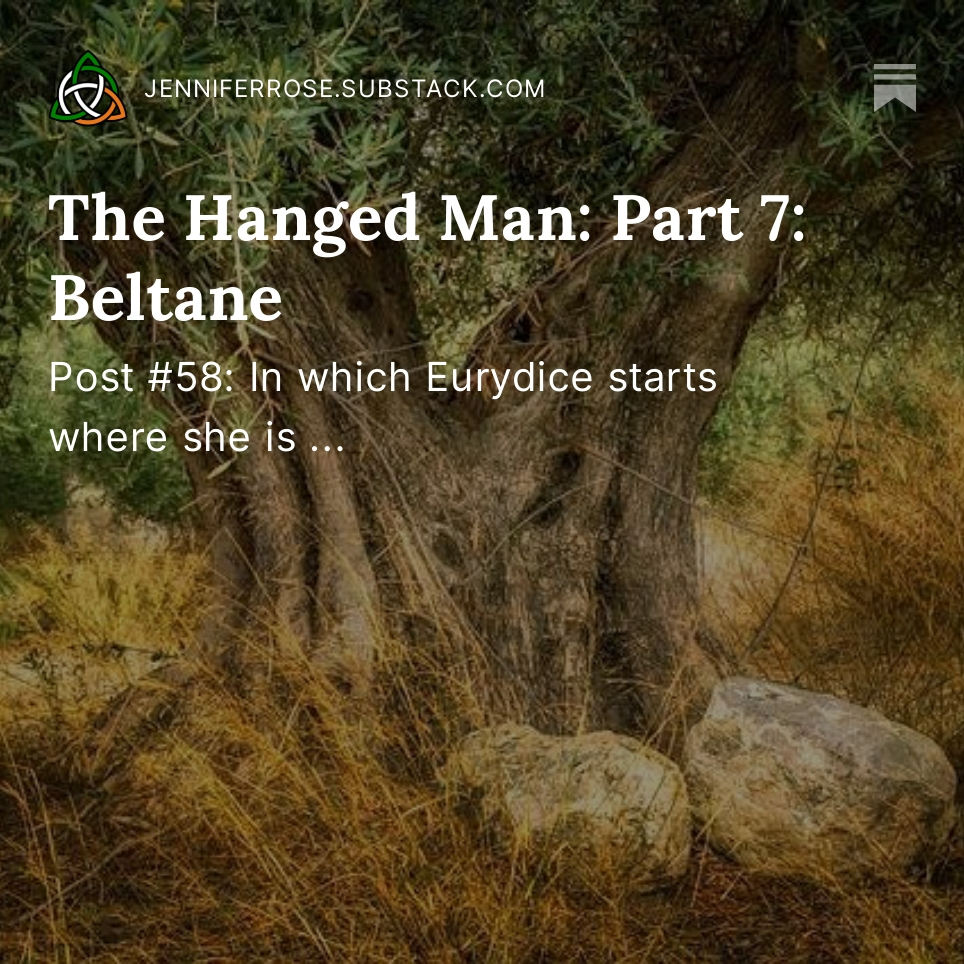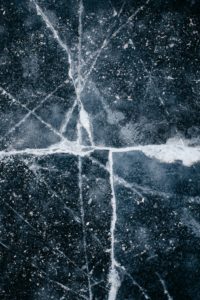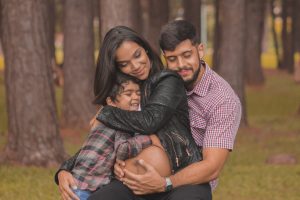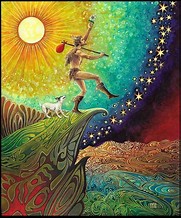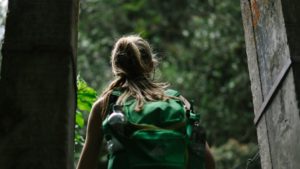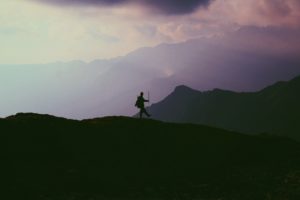Reclaiming Mother
February. A couple of days with -40 degrees wind chill here in Maine that felt apocalyptic. A dead car battery. At work, a broken pump in one of the pools, private swim lessons, ill team members, and an upcoming lifeguard recertification training this weekend, which I’m sure I’ll pass. Probably. A $250 “unscheduled delivery charge” on a $500 + propane bill, as though the brutal cold was somehow our fault. A possible estate tag sale on the contents of my mother’s untenanted house in Colorado, as she now lives in memory care.
The sound of the cardinal at the birdfeeder. The cats basking on my desk in the morning sun. Blueberry lavender tea. The scent of a lavender candle. Imbolc, when the wild maiden returns. The Ice Moon, or, if you prefer, the Storm Moon. Daylight arrives earlier and lingers later.
Through it all, I think about The Mother. The Mother the wild Imbolc maiden might become. The Mother who nurtures, creates, carries the possibility of new life and beginnings within us. I think of biological mothers who labor and deliver a new baby into the world. I think of foster mothers, substitute mothers, women who grieve for their empty wombs. New mothers. Struggling mothers. Mothers whose children have grown and gone, or just … gone.
Sisters and aunts and grandmothers. The long line of mothers who stand behind our own mothers.
Myself as Mother.
I wrote down a quote recently. Unfortunately, I didn’t write down the source of the quote! I always think I’ll remember and then I don’t. Never mind. If it’s yours, let me know and I’ll give you full credit!
“A mother without fear of her own potential.”
There are so many ways to unpack this. A creator, an archetypal mother without fear of her own potential. Is there any artist or maker alive who doesn’t struggle with his or her fear of failure and success?
A young woman, simmering with hormones, discovering the power and potential of her sexuality in the context of rape culture and patriarchy; risking unplanned pregnancy, sexually transmitted diseases, violence, heartbreak, health, and even life.
A woman who longs to be Mother but cannot conceive, or carry, or deliver a living child. The yearning. The agony. The grieving and despair at being unable to fulfill such an overwhelming biological imperative. A woman who feels herself a vessel of death rather than a vessel of life.
A mother, the sweat of labor still on her face, swept with a ferocious love for the infant she’s just birthed, a love terrifying, passionate, transforming the landscape of her life irrevocably and forever.
A mother, lined, weary, anguished over her child’s unhappiness, ill health, addiction, behavior, wounds, choices, death. The passion of her pain equals the passion of her love. The passion of her rage and fear equal the passion of her love. How can this child we carried and cherished and loved so deeply, this child we would have defended with our teeth, our fingernails, our life, make self-destructive choices? How can they refuse to love themselves? How could we have failed to protect their health and happiness?
The ability to love like a firestorm, like a hurricane, like an earthquake, most would agree, is exciting and wild, a beautiful force of nature, perhaps the most powerful feeling in the world. But never forget passion cuts both ways. If we release and allow the potential of our love, we have opened ourselves equally to grief, loss, rage, unendurable pain.
I am a mother. I fear that potential.
Not that I had a choice. The feel of my newborn sons in my arms overcame me as powerfully as labor did. I was helpless before it. Their wellbeing and existence twined inextricably with mine in an instant. I made no conscious choice and had no conscious control enabling me to stand back from my potential as Mother.
I was Mother. They made me into Mother. I can never go back.
Yes, I know, boundaries are important. Individuation is important, as are freedom, letting go, and a hundred other facets of emotional intelligence I’ve written about on this blog. But I’m not talking about the long road of motherhood here, where we learn and stumble, fall down to rest, weep, get up, learn and stumble again. I’m talking about the timeless primal bond, deeper than language, deeper than reason. The wild love that works through us. Divinity, perhaps. Some would say The Devil. Whatever it is, it’s bigger than us. Bigger than me, anyway.
Do we imagine our own mothers feeling about us as we do about our children? Can we imagine it?
I can’t. If my mother felt for me what I feel for my sons, the tempest of her passion was never expressed in a way I understood it. Not in words, not in touch, not in action. Now, as she drifts in her dementia, I wonder, though, if she did feel as I did, but some great wound or constriction in her heart, now loosened because she does not remember it, did not allow her to express it. Perhaps her fear of her own potential as Mother was too great to allow her to demonstrate the depth of her love.
If so, I can understand. I can forgive.
Can I forgive myself as Mother? Can I forgive the things I didn’t say and should have, the things I did say and shouldn’t have, the unintended hurts and consequences as I made choices and lived my life? Can I forgive my inability to keep them safe every minute of their childhoods? Can I forgive my ignorance, my lack of understanding regarding their needs and challenges?
I used to tell a story about an orphaned boy who was “so lonely and so hungry nobody wanted to be with him.” That phrasing always made me fight tears when I spoke it. More than my many imperfections as Mother, can I forgive the way I tried to abandon the Mother part of myself? As my sons grew into manhood and began to live their own lives and I saw their challenges and pain, the Mother in me was too lonely and too hungry. Too filled with pain and rage, grief and shame. I turned away from her for a time, walked on without her, left her alone in the wilderness to live or die, as long as I didn’t have to experience her hunger, her loneliness, her feelings.
With my first child, I claimed the potential for Mother within myself. I flung myself into it, holding nothing back, having no thought of caution or reserve. And then, years later, I rejected it, abandoned joy and love because I could no longer face the pain. I severed myself from my own mother. I severed myself from my experience of Mother. I sundered myself and lived for a time with a cleaved heart.
But my love is a blind thing, a feeling without reason or logic. No matter the distance between my mother and myself, my sons and myself, my love did not diminish. Nor did the suffering that goes with it. The internal Mother I evicted grieved and wept. She lit candles and raged and feared and prayed for peace, for all to be well. She scratched at the windows of my life, whispered dreams beside my pillow, followed me like an abandoned spirit. She is mine and I am hers, though I tried to cast her away.
I know I will never be whole without her. The child within me, the crone I am growing into – both need the Mother. I need her as I care for animals and people, as I nurture new life in the garden, as I teach children to swim, as I write, as I cherish my friends and family. As I cherish myself.
Perhaps I simply needed a break from the pain. Perhaps I could not learn to love myself while being battered by the needs and demands of my mother and my sons. Now, my ability to care for and nurture myself gives me a place to pause, to rest. Perhaps, as I age, I am growing in wisdom, losing not the depth of my love, but the frantic edge that cuts so keenly. Love, after all, endures. Motherhood endures. I am the sum of my parts plus a little more. I cannot decide to be less. I might as well accept all of myself, reclaim all of myself, be all of myself. 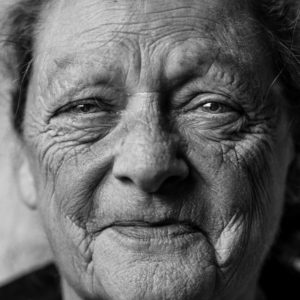
And so, I’ve returned, Mom. We were not a perfect mother and daughter, you and I. We each did our best, and now my best is better than that. Let there be peace between us now, at the end. I have never stopped loving you. And Mother of my sons, cease following me just out of sight. Come in. Let us soothe one another’s weary regrets and scars. We loved with everything we had. Those we gave life to were never ours to keep. They must walk their own paths. Let us find a way to release our love from our pain.
Let us reclaim one another.
Questions:
- What was your experience of being mothered?
- What has been your experience of being a mother in the wide sense, as a creator, a biological mother, or a substitute, surrogate, or foster mother?
- What potential in yourself do you fear?
- Who in your life has been so hungry and so lonely nobody wanted to be with them? Have you ever felt like that person?
Leave a comment below!
To read my fiction, serially published free every week, go here: 